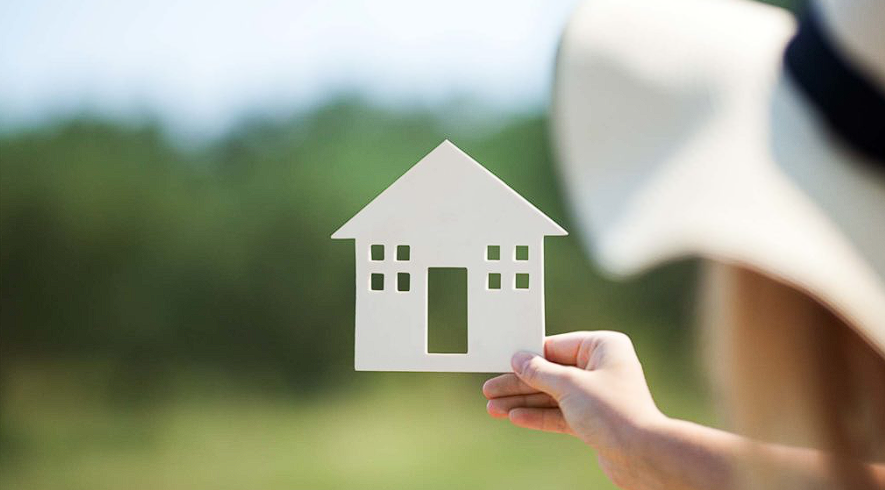
The Expanding Real Estate Market
Each day, real estate businesses are blooming with the rapid increase in population and its demand. As businesses operate on the pool of demand and supply, the two always work hand in hand. But people’s needs to be met can only be done within affordable resources. The tendency to buy a house has shifted to buying a flat in recent times. A lot of people are now buying a flat which is more convenient and does not cost too much. The following article seeks to endorse this shift in trend.
1) Valuation: Appreciating Property Value
An effective approach of establishing how much a property is worth is through assessment. It allows you to evaluate if purchasing a resale property is a reasonable decision. When conducting a property valuation for a resale apartment, take into account the following aspects:
2) Builder/Developer Brand: Track Record
Before buying a resale apartment, it is reasonable to study the builder or the developer’s past performance. You can view the works implemented by the developer as well as the standard of ready made projects. The best way to seek this is to check out several projects. Furthermore, it is also important to check if they are RERA registered and compliance with the rules and regulations.
3) Age of the Property: Age Consideration
It is usually ideal to stay away from an older property since most older properties are seeking refurbishment and re development which leads to increased costs. In North America, the average age of a residential unit will be a spectrum of between 50 years to 60 years old. Therefore, if you can get a property that is in the age bracket of between 1 to 5-10 years, then we can assure you that the deal is a good one.
4) Quality of Construction: Be Safe and Secure
The envisioned freedom of the resale property should encompass the following:
- Structural Integrity: Have an assessment of the structural components and designs with the aim of achieving the most Efficacy and Safety as the primary determinants.
- Room Measurements: Don’t forget to measure the spaces according to the dimensions supplied in the layout.
- Wall Thickness: Look out for hollow walls and the mix in the concrete to assess thickness of the walls.
- Surface Conditions: Analyze unevenness superimposing, cracking, and drying of the paint.
- Sanitary Fixtures: Examine the working of the restrooms, toilets and other fixtures that use water, including their drainage.
- Utility Supply Lines: Confirm the points of connection for gas, electricity, and water lines.
- Window and Door Alignment: If there is a problem in closing a door or window, check if it was properly fitted.
5) Locality and Infrastructure Development: A Major Influence
Neighborhood plays a significant role in determining the overall return and price appreciation in the property. Make sure to check the level of infrastructure in the area before buying a resale unit. The standard for living is determined by transport, energy, number of roads and bridges, water supply and government services.
6) Connectivity: Accessibility Matters
The connectivity of the area is one of the dominant variables that result in the growth of the locality. Good roads and rail and air transit, proximity to places of work, and schools, medical and entertainment facilities improve the quality of life of the population.
7) Cost Involved: Look Beyond the Sale Price
Purchasing a resale flat may not be as easy as just paying the sale price since there will be additional costs incurred. With all the costs involved properly explained, you will be in a better position to follow and estimate each and every cost, as the deal progresses.
8) Stamp Duty and Registration Cost: Know the Fees
First, the government imposes the stamp duty on resold apartments depending on the locality a villa or an apartment is situated, for example, in case of a resale apartment in Mumbai, the stamp duty is 5% of the market value and a further one percent as registration charge on the market value of the property. Factors determining such costs include the market value of the property, the classification as commercial or residential together with the type of region such as urban or rural.
9) Utility Cost: Budgeting for Connections
Such costs as registration and utility connection fees for water, gas, and electricity should be approximated and budgeted for alongside the other miscellaneous fees like deposits and transfer fee.
10) Repair and Renovation Expenses: Assessing Future Costs
Repairing, renovating and refurbishing can be expensive hence once you have gotten a home that you want to use for rent, you need to do proper cost estimates to know how you will charge for the rent. Determine locations that are in need of repair and renovation and query them in your total calculations.
11) Post Occupation and Maintenance Cost: Ongoing Expenses
Post-occupation includes cost incurred like maintaining the cooperative society ‘club’ with monthly due payments, as well as paying dues for amenity using and inclusive of maintenance of the society. Verify that there are no outstanding comments on maintenance work that the previous owner was required to perform.
12) Safety & Security: Basic Must Have’s
Basic safety precautions for homes in structures are in the form of extinguishers, smoke detectors along with Stanton Water sprinkler systems. In addition, ways to deal with natural calamities like earthquakes and floods should also be provided.
13) Amenities: What You Should Look For
Determine the amenities that you need. For larger households, a clubhouse, children’s play area, appropriate parking, power backup and good elevator services are essential.
14) Rental Potential: Future Cash Flow
Think about the lease potential the property holds. A high yield for rent is a good source of revenue and gives one the flexibility to move in the future.
15) Future Resale Value: Determining the Possible Areas of Increasing Value
Future regional expansion and growth of the market, new developments in terms of physical infrastructure and the policy that is expected to come in all that plays a role in deciding the capital value of the property.
16) Documents: What to Review
When purchasing a resale apartment, ensure to go through the following documents.
- Approvals for Building Plans
- Registration with the Real Estate Regulatory Authority
- Certificate of Occupancy
- Certificate of Completion
- Records of Encumbrance
- Certificates of No Objection
- Certificate of Possession
- Receipts of Tax Payment
- Documents for Clearance of Home Loan
- Title Deed
- Sale Deed
- Unitholders Certificate
17) Terms and Conditions: Understanding the Fine Print
Any terms and conditions which are always stated by one party to another party, and are known as essential conditions need to be understood in full.
Conclusion: Finding Your Dream Location
Despite the in abundance options of various forms of shelter being rather annoying and amongst the toughest of to do, it however is possible with the right directions. By stating facts and orienting oneself in the right direction, locating a suitable comfy shelter termed either as the top floor or bottom floor should be rather possible. There are three prime questions that this article intends to seek very relevant answers such as where to buy, what to buy and how to buy.
For more information about Dream Location and to search your dream property, please visit Dream Location on Google Map. Contact us today to know more about the best real estate deals in Delhi and North India; we will connect you to the right property investment.
